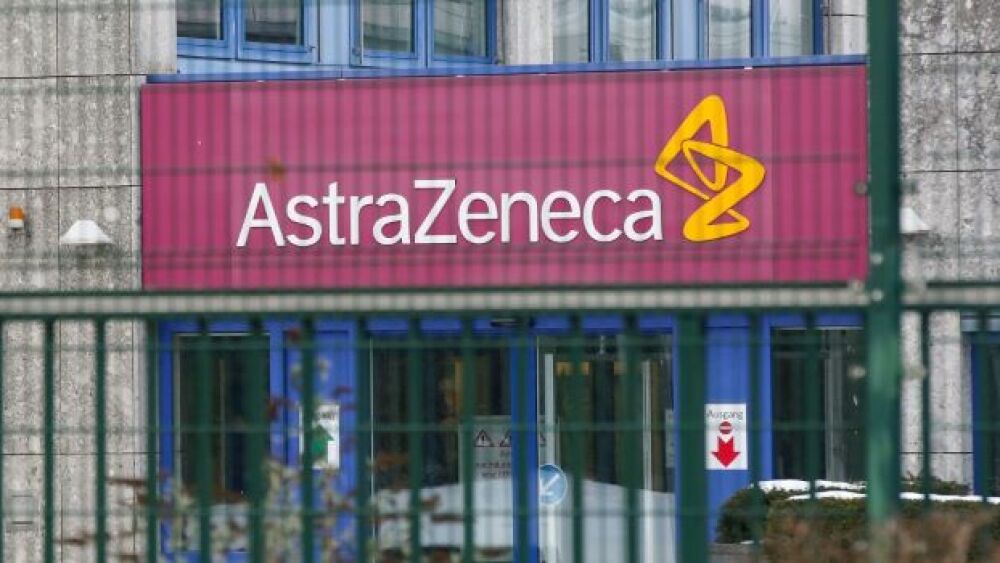AstraZeneca’s Imfinzi and Lynparza met primary endpoint markers in the Phase III DUO-O trial in advanced high-grade epithelial ovarian cancer, according to data released Wednesday.
Pictured: AstraZeneca headquarters building/ Courtesy Bodo Marks/Getty Images
The combination treatment of AstraZeneca’s Imfinzi (durvalumab) and Lynparza (olaparib) met its primary endpoint in the Phase III DUO-O trial in advanced high-grade epithelial ovarian cancer, according to an interim analysis of the study released Wednesday.
Patients who received the Imfinzi-Lynparza combo, along with chemotherapy and Genentech’s Avastin (bevacizumab), saw a significant and clinically meaningful improvement in progression-free survival (PFS), as compared with a control group treated with chemotherapy and Avastin.
For patients who received Imfinzi, chemotherapy and bevacizumab alone (without Lynparza), PFS improved nominally and was not statistically better than the control group.
AstraZeneca did not publish specific data from the interim analysis. Results for overall survival and other secondary efficacy endpoints were still immature at the time of the interim analysis.
While still preliminary, these early data from DUO-O point to the potential of the Imfinzi-Lynparza combo in ovarian cancer patients without tumor BRCA mutations, Susan Galbraith, executive vice president of Oncology R&D at AstraZeneca, said in a statement.
The company will also analyze the data for critical secondary outcomes and look at different patient subgroups, Galbraith said.
DUO-O is a three-arm, randomized, double-blinded and placebo-controlled trial that enrolled more than 1,200 advanced ovarian cancer patients without BRCA mutations. In the study, patients were initially treated with Imfinzi, Avastin and platinum-based chemotherapy before transitioning into maintenance therapy with Imfinzi, Lynparza and Avastin.
As for safety, the adverse event and tolerability profiles of the combination regimen were broadly consistent with what was previously reported.
AstraZeneca Expands Imfinzi’s Indications
Last month, Imfinzi improved event-free survival in early-stage non-small cell lung cancer (NSCLC) when used with neoadjuvant chemotherapy before surgery and as an adjuvant monotherapy after resection. These data were from a planned interim analysis of the Phase III AEGEAN study, which did not yet have mature data for disease-free and overall survival.
AEGEAN’s data drop comes a few months after Imfinzi, in combination with AstraZeneca’s Imjudo (tremelimumab) and platinum-based chemotherapy, won the FDA’s approval in November 2022 for adults with metastatic NSCLC.
Imfinzi scored two other regulatory wins during fall 2022, including one for hepatocellular carcinoma in October and one for locally advanced or metastatic biliary cancer in September.
However, in March 2022, Imfinzi with chemoradiotherapy missed its primary endpoint in the Phase III CALLA trial when it failed to significantly improve PFS in patients with advanced cervical cancer compared to chemoradiotherapy alone.






